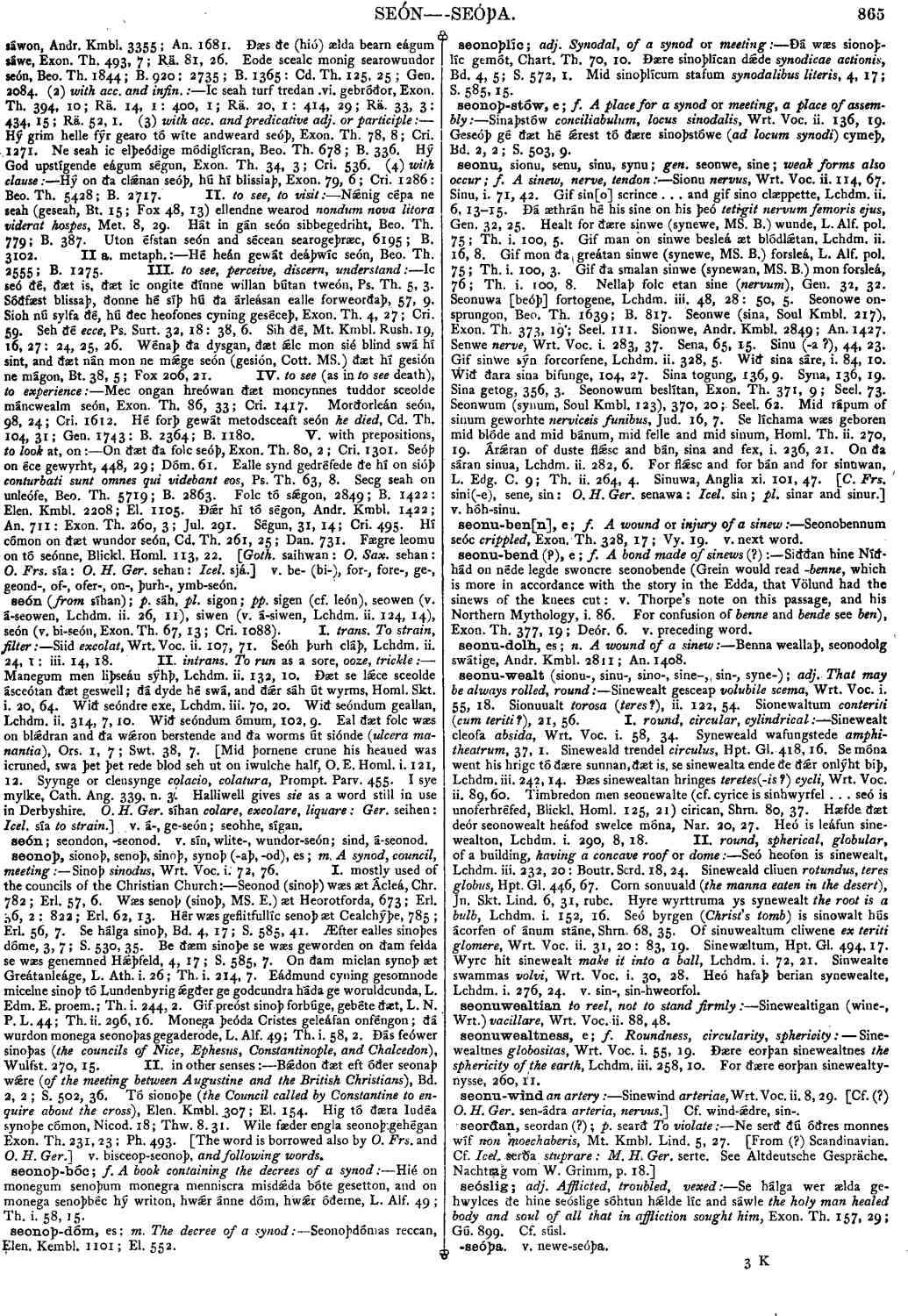seonoþ
- noun [ masculine ]
-
Sinoþ
sinodus,
- Wrt. Voc. i. 72, 76.
-
Seonod (sinoþ) wæs æt Ácleá,
- Chr. 782 ; Erl. 57, 6.
-
Wæs senoþ (sinoþ,
- MS. E.) æt Heorotforda, 673; Erl. ; 36, 2 : 822; Erl. 62, 13.
- Hér wæs geflitfullíc senoþ æt Cealchýþe, 785 ; Erl. 56, 7.
-
Se hálga sinoþ,
- Bd. 4, 17; S. 585, 41.
-
Æfter ealles sinoþes dóme,
- 3, 7; S. 530, 35.
-
Be ðæm sinoþe se wæs geworden on ðam felda se wæs genemned Hǽþfeld,
- 4, 17 ; S. 585, 7.
-
On ðam miclan synoþ æt Greátanleáge,
- L. Ath. i. 26; Th. i. 214, 7.
-
Eádmund cyning gesomnode micelne sinoþ tó Lundenbyrig ǽgðer ge godcundra háda ge woruldcunda,
- L. Edm. E. proem. ; Th. i. 244, 2.
-
Gif preóst sinoþ forbúge, gebéte ðæt,
- L. N. P. L. 44; Th. ii. 296, 16.
-
Monega þeóda Cristes geleáfan onféngon; ðá wurdon monega seonoþas gegaderode,
- L. Alf. 49; Th. i. 58, 2.
-
Ðás feówer sinoþas (
the councils of Nice, Ephesus, Constantinople, and Chalcedon
),- Wulfst. 270, 15.
-
Bǽdon ðæt eft óðer seonaþ wǽre (
of the meeting between Augustine and the British Christians
),- Bd. 2, 2 ; S. 502, 36.
-
Tó sionoþe (
the Council called by Constantine to enquire about the cross
),- Elen. Kmbl. 307; El. 154.
-
Hig tó ðæra Iudéa synoþe cómon,
- Nicod. 18; Thw. 8. 31.
-
Wile fæder engla seonoþ gehégan Exon. Th. 231,
- 23; Ph. 493.
Bosworth, Joseph. “seonoþ.” In An Anglo-Saxon Dictionary Online, edited by Thomas Northcote Toller, Christ Sean, and Ondřej Tichy. Prague: Faculty of Arts, Charles University, 2014. https://bosworthtoller.com/27506.
Checked: 0